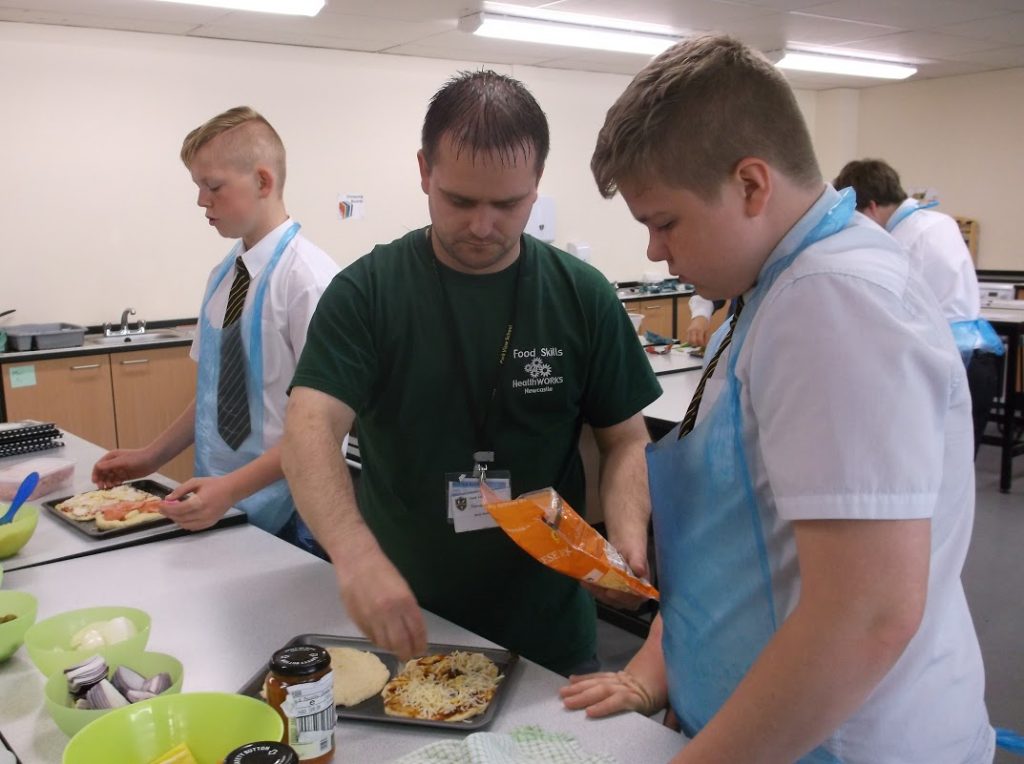Picture the scene, it is Monday afternoon and twenty 14 year olds are listening with rapt attention to a group of elderly men and women. Some are writing furiously while others are using their mobile phones to record what is being said. Back at school with the guidance of their teacher the students will spend the week crafting beautiful stories. The spelling and punctuation will be accurate, the presentation stunning. On Friday, the students will revisit their new friends and present them with their Story. There will be tears on both sides and teachers and care workers will look on with pleasure as they see the generations collide in an exquisite display of affection and understanding.
This is CCM in action and is a real example taken from Park View School; I could give you many others. The students are Year 9, the teacher is Alison Moore. Alison has planned everything meticulously. She has talked to the care home manager and the residents. She has briefed the students and worked with them to plan how they will conduct their interviews and the importance of listening with respect and understanding and of course of being dressed smartly. She has discussed with the students how they might present their finished work and has helped them plan their return visit.
Alison has planned for all eventualities however, she could not have anticipated how emotionally engaged the students would become and how their desire to represent the lives of the residents would drive their desire to ensure that they produced beautiful, meaningful and honest work. Nor could she have anticipated the emotions that would overwhelm both residents and students when the stories were presented framed and gift wrapped. There were laughter and joy but also tears and sadness for a life once lived but now gone. Rarely do young and old have the opportunity to share something so powerful.
Such an experience enriches the lives of both young and old and is at the very heart of why CCM is so important. If we wish our communities and our young people to grow and prosper to be compassionate and kind we must make this part of the way we organise our schools and plan our education. This is how we build social capital and never has that been so important. Building social capital is absolutely critical in our increasingly complex and chaotic world, a world in which young people and their families are faced with evermore challenging economic and social circumstances. At Park View 26% (and rising) of our school population are Pupil Premium and increasing numbers of them are ‘Looked After’. Yet hidden behind these statistics is a darker story, the families who do not qualify for Pupil Premium but are struggling to cope with the demands of daily life and the many young people and their carers facing the catastrophic fallout from declining mental health.
Ron Berger (The Ethics of Excellence) talks about the need for authentic audiences to inspire young people to create beautiful work, which is what Alison enabled. Keri Facer (Learning Futures) talks of the need for schools to really be the centre of their communities and Mick Waters (Thinking allowed on Schooling) tells us that it is social capital that will rescue children and their families from poverty not ‘intervention and catch-up’. Waters passionately believes that schools should give young people the skills and the courage to network to challenge themselves to meet their aspirations. They need to be able to be able to present themselves with skill and confidence. They need to experience the richness of their cultural heritage, just as their ‘better off’ peers do. Money and connections may not buy happiness but it at least makes prosperity more likely.
I would like to say that the scene I painted in the opening paragraphs was the everyday story of Park View. It is not. You will find examples of such richness throughout the year as teachers fight to preserve the joy in learning, but general such experiences take place at the end of the Summer Term in ‘Enrichment Week’. They do not inform the mainstream curriculum which is increasingly constrained and restricted by a government hell bent on returning to the 1950’s. The teaching profession must stand against this and CCM is a powerful method of reasserting our independence and our commitment to nurturing creative and compassionate young people. If we choose to accept this ‘Impossible Mission’ I have no doubt that together schools and their communities can build a fairer society in which all are valued and all can succeed. The case for ‘Community Curriculum Making’ has never been so strong.
Written by Kim Cowie
May 2016 – Park View School
Kim Cowie has recently been appointed as Lecturer in Education specialising in Professional Learning and will join the ECLS team in September 2016.



